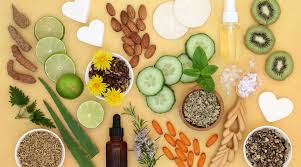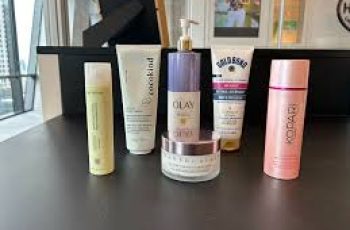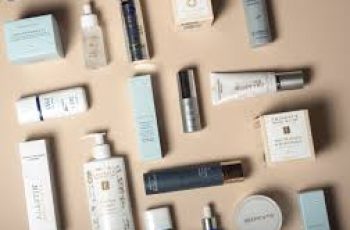
5 Most Effective Anti-Aging Ingredients
“Anti-aging” is probably the most searched word in the beauty world. We are all desperately searching for the most effective ingredients that can slow down the aging of our skin.
Whether you want to or not, you will age. But that doesn’t mean you have to look that old.
That’s why I am introducing you to the 5 most effective anti-aging ingredients and how to use them in your skincare routine.
5 Most Effective Anti-Aging Ingredients
An effective skin care routine is the first step to fighting the early signs of skin aging.
Make sure to keep your skin clean and nourished with ingredients that are best suited to your skin type and personal needs.
Every day, the skin is exposed to harmful free radicals, such as excessive UV radiation, bacteria, and environmental pollution.
Unprotected skin may show signs of premature aging, such as fine lines and wrinkles. To help you a little, here is a simple daily skin care routine.
It keeps the skin microbiome healthy and functioning properly and ensures that the skin has the right amount of moisture and oils. Both are essential for radiant and youthful skin.
Cleansing: Depending on your skin type, you can use gels, creams, or oils to cleanse your skin. The following steps allow for optimal penetration of the skin by removing makeup, dirt, and bacteria.
Acid Toners: These typically contain AHA or BHA (more on this later) and remove dead skin cells.
Serum: This product is considered one of the most important steps in your skincare routine because it is formulated with a high percentage of active ingredients that reach the lower layers of the skin.
Moisturizer: Ideal for protecting the skin from harsh weather and other skin stressors.
Sunscreen (mornings only): Protects against skin-damaging UV rays. The importance of SPF is explained in more detail below.
The quality of your skincare ingredients plays a major role in achieving the best skincare results, combating skin aging, and providing the associated benefits to your skin.
Here are five of the most important ingredients that have a noticeable impact on skin aging.
Vitamin C
One of the most commonly used active ingredients in skincare, Vitamin C has a variety of antioxidant properties that protect the skin from free radical damage.
Free radicals are one of the main causes of premature skin aging, which further damages the skin, leading to reduced collagen production and loss of firmness in the face.
Other skin issues are often caused by skin aging, such as dark spots, which vitamin C can also address. The most effective concentrates are between 5% and 20%.
This depends mainly on the product and formulation, as well as which concentrate is best for your skin type.
Vitamin C is rich in antioxidant properties, which can counteract the damage to the skin caused by free radicals, which are the first signs of skin aging.
Vitamin C can make the complexion glow and radiant.
Vitamin C can reduce the appearance of dark spots, which is another sign of skin aging.
Although this ingredient is valued by many people, it is very difficult to use correctly and can cause side effects, such as increasing the skin’s photosensitivity, which can cause skin irritation in some people.
Active vitamin C also has a fairly short shelf life. In order to fully realize its effectiveness, the product should be kept out of direct sunlight and stored in opaque packaging.
You can find another blog post on our website that goes into more detail about the skin care benefits of vitamin C.
Vitamin A (Retinol)
Vitamin A, also known as retinol or retinoids, is considered an anti-aging super ingredient for the skin.
It speeds up the skin’s daily cell turnover, resulting in a permanently smoother, brighter, and more radiant complexion. This also significantly reduces fine lines, wrinkles, dark spots, and even blemishes.
When using retinol, there are a few things you need to keep in mind in your daily routine.
Retinol is available in a variety of formulas, from prescription to over-the-counter, and in concentrations ranging from 0.25% to 1%.
This is important because the skin needs to develop a tolerance to the ingredient. If you want to know more about the benefits of retinol for skin care, we have shared some tips in our previous blog post.
Retinol speeds up the cell turnover of dead skin cells, making the skin look brighter and younger.
Retinol fights problems like fine lines, wrinkles, and dark spots.
Retinol stimulates collagen production, making the skin plumper, firmer, and more elastic.
There are some downsides to retinol, such as dryness, rashes, and peeling. Therefore, it should be used slowly and correctly.
As mentioned before, retinol has some side effects. So, follow the instructions and apply a small amount once a week to give your skin a boost in elasticity.
If you have any concerns, consult a dermatologist or skin care professional before use.
AHAs and BHAs
AHAs and beta hydroxy acids (BHAs) are chemical exfoliants commonly found in products such as cleansers, acid toners, serums, and masks.
AHAs work on the upper layers of the skin to remove dead skin cell buildup that prevents the skin from looking dry, flaky, and aged.
The most popular AHAs in skincare include glycolic acid and lactic acid. Both can reduce signs of aging, such as hyperpigmentation, fine lines, and wrinkles, with lactic acid being particularly popular for sensitive skin.
Salicylic acid is the only BHA known to have a positive effect on the skin.
While it’s primarily known for its effects on problem and acne-prone skin, it can boost collagen production, which can correct signs of lost firmness in the face.
Both AHAs and BHAs remove residue and product buildup that can damage your skin and cause premature aging.
AHAs and BHAs break down the bond between dead skin cells and the top layer of your skin, preventing them from accumulating and causing skin aging, which can lead to fine lines and wrinkles.
AHAs can restore your complexion’s radiance and reduce dark spots.
BHAs can stimulate collagen production for firmer, more youthful-looking skin.
With so many different types of AHAs and BHAs, choosing the right one can be difficult. Read our blog post to learn what they are and how they help the skin.
Sunscreen
I might as well advocate for daily sunscreen use, but it is really an important step in protecting your skin from premature aging.
I would even go so far as to say that if you are only going to use one skincare product, it should be sunscreen. UVA and UVB radiation can cause skin problems and damage, including skin cancer.
Other causes include the breakdown of collagen and elastin, which over time can cause sagging skin and more visible wrinkles. Dark spots are also caused by sun damage.
Even on cloudy or grey days, an SPF of at least 30 can easily combat these.
Sunscreen protects the skin from UVA and UVB radiation.
Sunscreen prevents the pigmentation of dark spots and the formation of new ones.
Sunscreen protects the skin and promotes the production of collagen and elastin.
Sunscreen forms a protective barrier for the skin, allowing your products to more effectively penetrate the skin and do their job.
Thanks to significant improvements in formulation, sunscreens no longer feel so heavy and harsh on the skin.
These lightweight products are easy to apply, do not clog pores, and do not leave any greasy residue. This makes them perfect for daily use.
Hyaluronic Acid
Hyaluronic acid is a natural humectant produced by the human body and is considered one of the most commonly used moisturizers.
It absorbs moisture from the air and stores it in skincare products. This can reduce the signs of skin aging, especially fine lines, and make them less noticeable.
After applying hyaluronic acid, the face looks youthful, plump, and smooth. This popular ingredient is used in numerous products in the cosmetics industry and is highly recommended by many.
Hyaluronic acid is a humectant, which means it draws moisture into the skin.
Hyaluronic acid locks in moisture in the skin, making the face look smoother and visibly reducing fine lines and wrinkles.
Hyaluronic acid is gentle enough for daily use.
Hyaluronic acid occurs naturally in the human body, so it does not cause any side effects.
With such unwavering effects, it is no wonder that hyaluronic acid is appreciated by almost all users. You can find all the benefits of hyaluronic acid for the skin on our website.
Below are five of the most effective anti-aging ingredients. It is important to find products that contain the best quality and concentration of these ingredients.
Therefore, always pay attention to the ingredient list on the back of the packaging.
If you incorporate these ingredients into your daily skincare routine, you can expect to see improvements in your complexion in about 10 minutes. 4 to 6 weeks.


